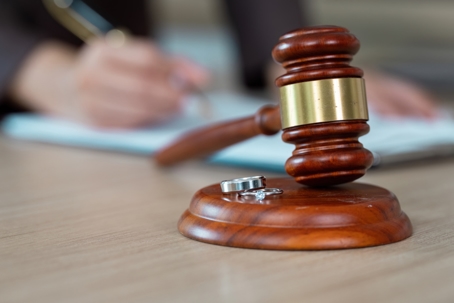As a certified family law specialist and divorce lawyer, Morales Law P.C. has guided countless clients through the complexities of divorce and child custody trials. While the prospect of a trial can be daunting, thorough preparation is key to a successful outcome. Here’s an inside look at how we prepare a party for the courtroom.
Exhibit Preparation: Your Evidence in Action
Exhibits are the backbone of your case—they are the documents, photos, videos, and other tangible items that support your claims. Preparing them meticulously is crucial.
- Identification and Collection: We start by identifying every piece of evidence relevant to your case, whether it's bank statements, property appraisals, text messages, or emails. Organization is paramount; each item is cataloged and clearly labeled.
- Authentication: For an exhibit to be admissible, it must be authenticated. This means proving that the exhibit is what you claim it to be. For example, if it's a bank statement, we'll need to show it came from the bank.
- Exhibit List and Binders: A comprehensive exhibit list is created, detailing each item. We then assemble exhibit binders for the court, the opposing counsel, and for your own use during trial. These binders are meticulously organized, often with tabs, to ensure easy access to any document at a moment's notice.
Reviewing Prior Declarations and Statements: Consistency is Key
During the divorce process, you will likely have submitted various declarations and statements to the court. These documents are critical, and reviewing them before trial is a non-negotiable step.
- Understanding Your Narrative: Your prior statements lay out your version of events and your requests to the court. We review these together to ensure you are fully familiar with every detail you've previously asserted.
- Identifying Potential Inconsistencies: The opposing attorney will scrutinize your prior declarations for any inconsistencies with your trial testimony. Our review aims to identify and address any potential discrepancies, ensuring your testimony remains consistent and credible.
- Refreshing Your Memory: Divorce proceedings can be lengthy, and details can fade. Reviewing these documents serves to refresh your memory on specific dates, conversations, and financial figures, allowing you to testify with confidence and precision.
Preparing for Cross-Examination: Anticipating the Challenge
Cross-examination is often the most nerve-wracking part of testifying. It's designed to test your credibility and the strength of your statements. Proper preparation can significantly reduce anxiety and improve your performance.
- Understanding the Opposing Attorney's Strategy: We analyze the opposing counsel's past declarations and legal arguments to anticipate the likely areas of questioning. What points will they try to challenge? What facts will they try to elicit?
- Practice, Practice, Practice: We conduct mock cross-examinations, where we play the role of the opposing attorney. This simulation helps you get comfortable with the process, learn to listen carefully to each question, and practice giving clear, concise, and truthful answers.
- Key Principles of Testifying:
- Listen to the Question: Do not answer until you fully understand what is being asked.
- Tell the Truth: Always. If you don't remember, it's okay to say "I don't recall."
- Be Concise: Answer only the question asked, without volunteering additional information.
- Stay Calm: Maintain your composure, even under pressure. Take a breath if you need to.
- Do Not Argue: Your role is to provide testimony, not to debate with the attorney.
Trial preparation is a rigorous process, but it’s a vital one. With a clear understanding of your exhibits, a firm grasp of your prior statements, and solid preparation for cross-examination, you can face the courtroom with confidence, knowing you are ready to present your case effectively.

